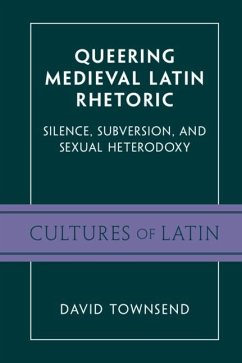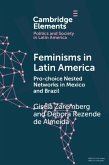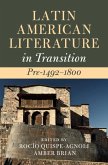This book reflects on what medieval Latin authors don't say about the sex nobody had-or maybe some had-and about how they don't say it. Their silences are artfully constructed, according to a rhetorical tradition reaching back to classical practice and theory. The strategy of preterition calls attention to something scandalous precisely by claiming to pass over it. Because it gestures toward what's missing from the text itself, it epitomizes a destabilizing reliance on audience reaction that informs the whole of classical rhetoric's technology of persuasion. Medieval Latin preterition invites our growing awareness, when we attend to it closely, that silence is not single, but that silences are multiple. Their multiplicity consists not in what preterition is, but in what it does. Preterition's multiple silences enabled subversive interpretations by individuals and communities marginalized under dominant regimes of sexuality-as they still do today.
Dieser Download kann aus rechtlichen Gründen nur mit Rechnungsadresse in A, B, BG, CY, CZ, D, DK, EW, E, FIN, F, GR, HR, H, IRL, I, LT, L, LR, M, NL, PL, P, R, S, SLO, SK ausgeliefert werden.









